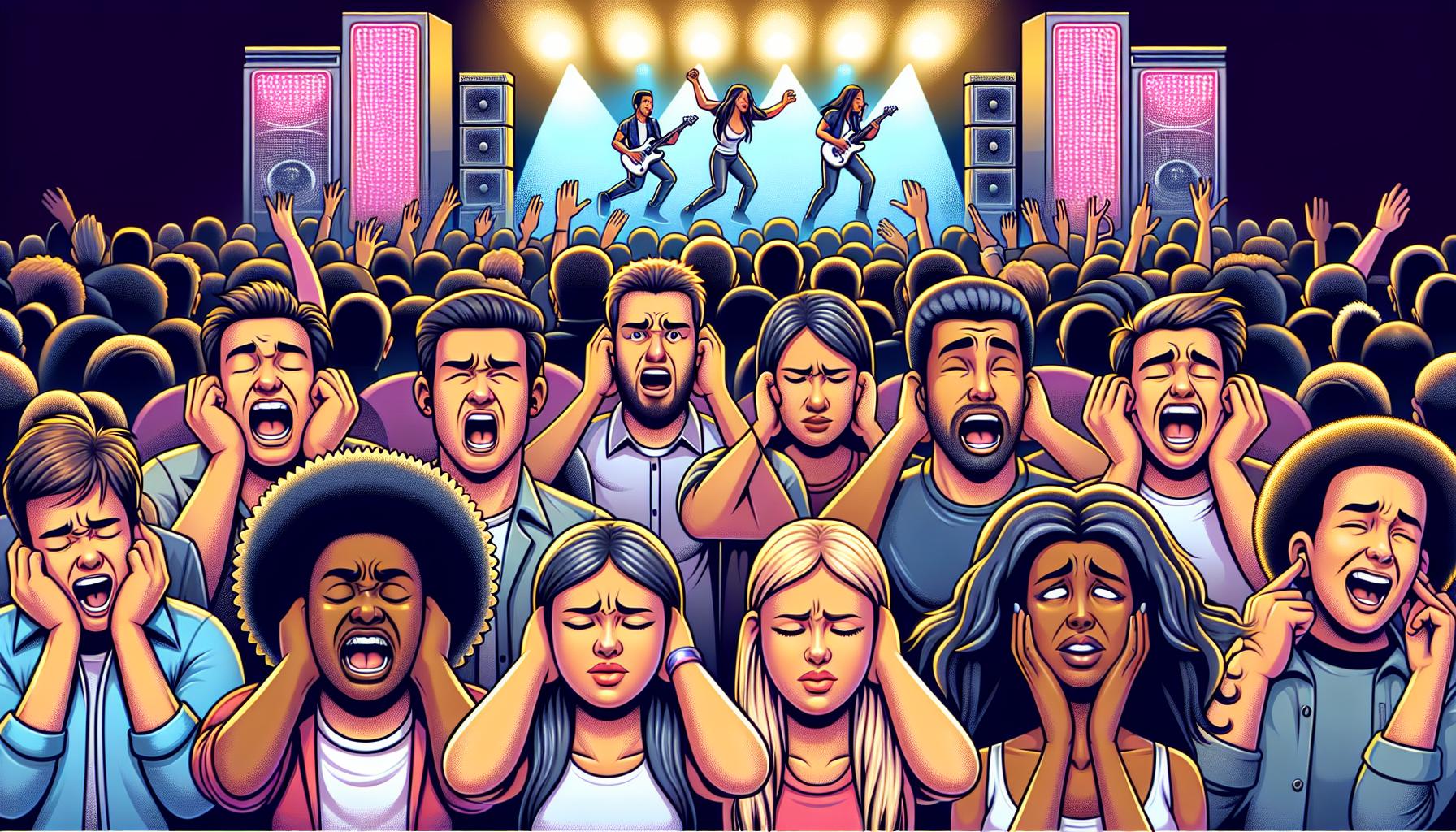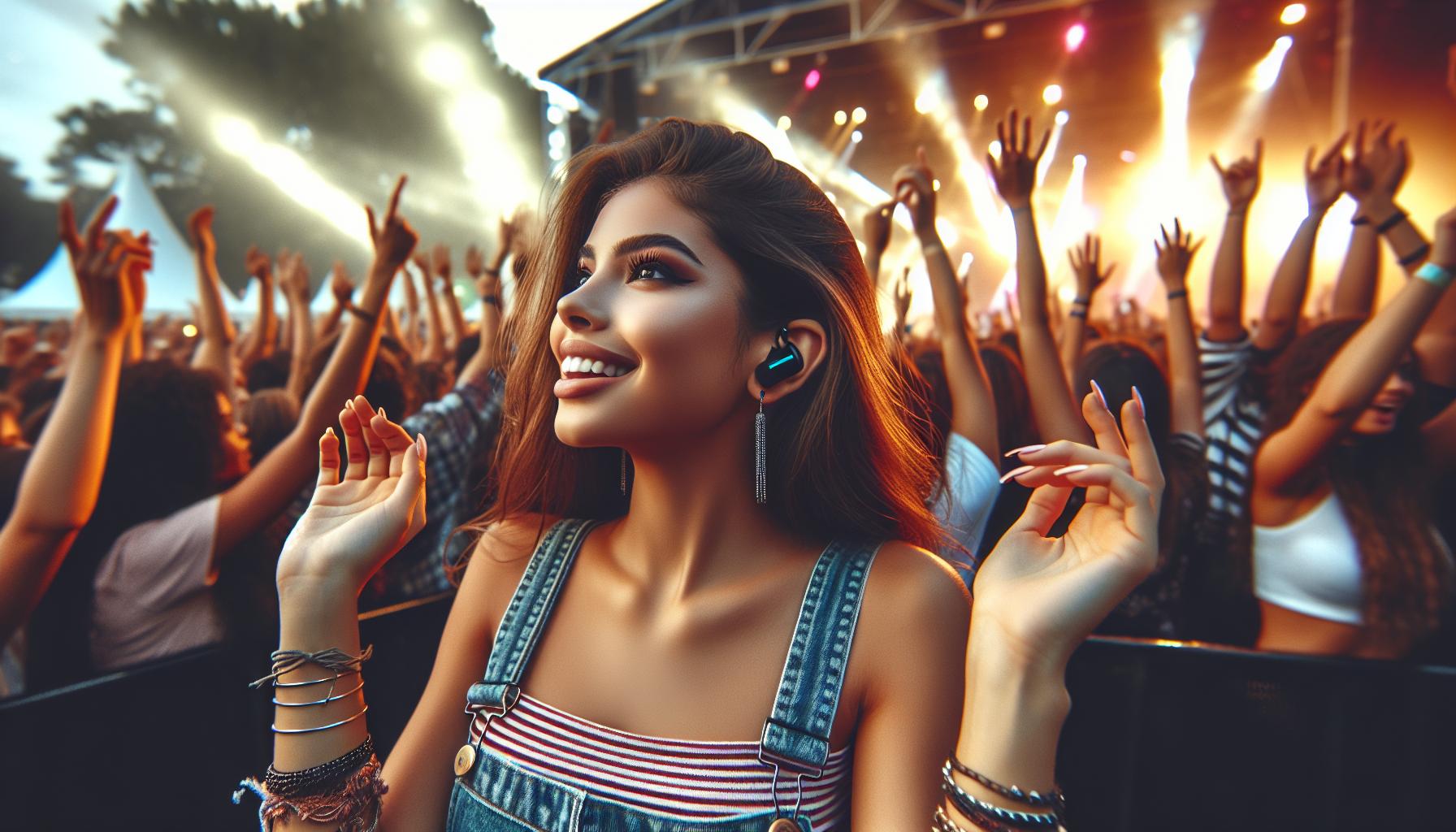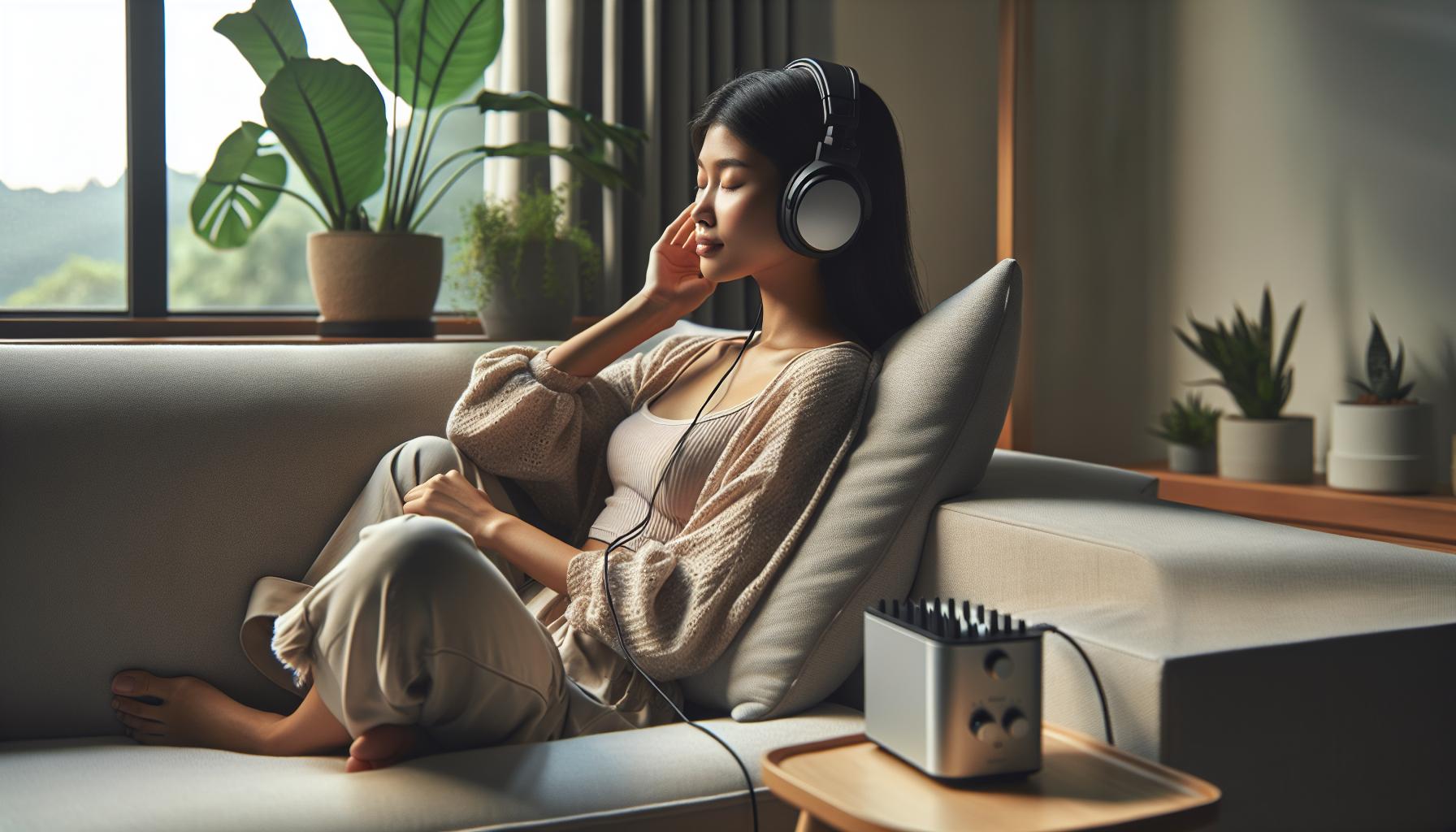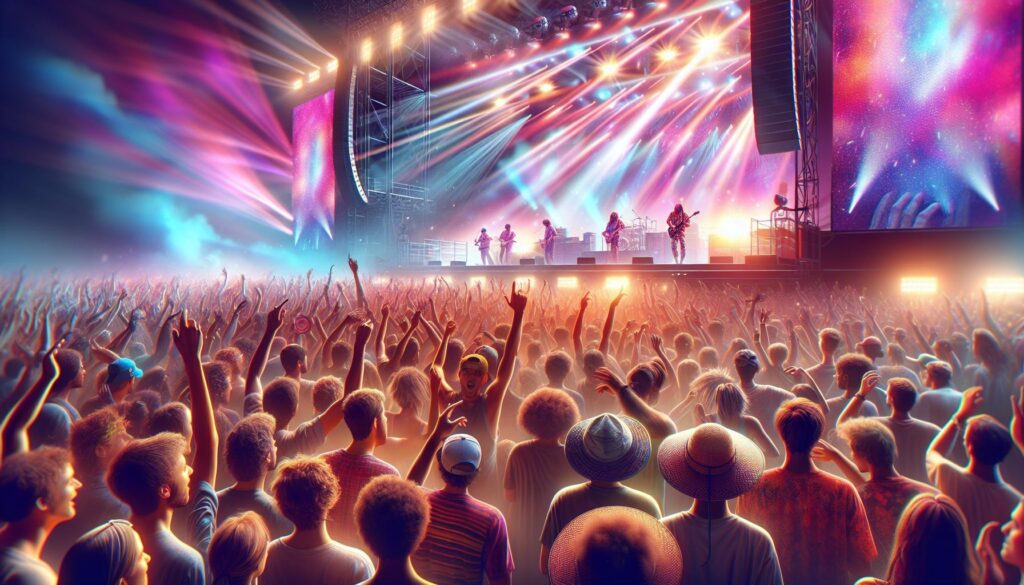I’ll never forget the first time I left a concert with my ears ringing—it was like the music followed me home, but not in a good way. That high-pitched hum or buzzing sound can be unsettling, especially when it lingers for hours or even days. If you’ve experienced this, you’re not alone, and it’s more common than you might think.
This ringing, known as tinnitus, often happens after exposure to loud sounds, like a concert. It’s your ears’ way of signaling they’ve been through a lot. While it might seem harmless at first, understanding why it happens is key to protecting your hearing in the long run. Let’s dive into what’s really going on and how you can prevent it from happening again.
Understanding The Causes Of Ear Ringing After A Concert
Exposure to loud music often results in a temporary ringing sensation known as tinnitus. This condition signals distress in the auditory system caused by high sound levels.
What Is Tinnitus?
Tinnitus involves hearing sounds, like ringing, buzzing, or humming, without an external source. According to the American Tinnitus Association, around 15% of people worldwide experience some form of tinnitus. After a concert, this symptom typically arises due to prolonged exposure to loud volumes exceeding 85 decibels.
How Loud Music Affects Your Ears
Loud music damages the tiny hair cells in the cochlea, a part of the inner ear responsible for sound processing. These cells can bend or break under extreme noise levels, reducing their ability to send accurate signals to the brain. For reference, concerts often reach 100-120 decibels, which is well above the threshold for safe listening established by the CDC.
Temporary vs. Permanent Ear Damage
Temporary damage occurs when hair cells recover after a few hours or days, resulting in the subsiding of tinnitus. However, permanent damage happens when hair cells die or sustain irreparable harm, leading to chronic tinnitus or hearing loss. Repeated noise exposure increases the risk of long-term damage.
How Long Does The Ringing Last?

Ringing in the ears after a concert, known as tinnitus, often fades within hours or days. Recovery depends on individual circumstances and exposure levels.
Factors That Influence Recovery Time
Exposure duration contributes significantly to recovery. Longer concerts or extended periods near loudspeakers increase the strain on the auditory system.
Sound intensity also affects recovery. Concerts often exceed safe levels of 85 decibels, where higher volumes, such as 100-120 decibels, may prolong symptoms.
Individual sensitivity can vary. Some people experience quicker recovery, while others may need more time due to differences in ear health, prior exposure to loud sounds, or age-related factors.
Previous ear damage slows recovery. Repeated exposure to loud sounds increases vulnerability, potentially extending the ringing duration or leading to permanent issues.
Signs You Should Seek Medical Attention
Persistent tinnitus lasting more than 48 hours warrants a consultation. Extended symptoms might indicate permanent damage to hair cells in the cochlea.
Accompanying symptoms such as pain, dizziness, or hearing loss suggest more severe auditory problems and require immediate medical evaluation.
Sudden onset tinnitus with no clear cause, like exposure to loud sounds, may indicate underlying conditions, including infections or neurological issues. Consulting a medical professional is crucial in these cases.
Tips To Protect Your Ears At Future Concerts

Protecting your ears during concerts reduces the risk of tinnitus and long-term hearing damage. Following the right strategies helps ensure your hearing stays intact while you enjoy live music.
Importance Of Earplugs
Wearing earplugs can significantly lower the risk of ear damage at concerts. High-fidelity earplugs reduce sound levels evenly by up to 20 dB, preserving audio quality while protecting your ears. Disposable foam earplugs are a budget-friendly option, but custom-molded earplugs offer better comfort and noise reduction. Always carry earplugs if you plan to attend a live music event.
Choosing The Right Concert Venues
Selecting venues with good acoustics minimizes harmful sound exposure. Outdoor venues disperse sound better, reducing ear damage risks compared to enclosed spaces. Larger halls with sound-absorbing surfaces help prevent excessively loud noise. Avoid standing close to speakers, where sound levels often exceed 120 dB, to limit direct exposure.
Safe Listening Practices
Adopting safe listening habits ensures long-term hearing health. Take breaks during concerts by stepping away from loud areas to let your ears recover. Limit exposure duration by arriving late or leaving early in loud environments. App-based decibel meters, like Sound Meter or Decibel X, can monitor volume levels, helping you know when to reposition or reduce exposure.
Treatment Options For Persistent Ear Ringing

Persistent ear ringing, or tinnitus, after a concert can indicate lingering auditory stress or damage. Exploring treatment options can help alleviate symptoms and protect hearing health.
At-Home Remedies
Limited exposure to loud environments allows the auditory system to rest, reducing irritation. Using white noise machines or fans helps mask ringing, making it easier to focus or sleep. Practicing relaxation techniques like deep breathing or meditation lowers stress levels, which often intensify tinnitus. Monitoring caffeine and alcohol intake decreases inner ear sensitivity, potentially relieving symptoms. Over-the-counter ear drops or supplements claiming tinnitus relief might offer mild benefits, although effectiveness varies.
Professional Medical Treatments
Audiologists and ENT specialists evaluate persistent tinnitus to identify underlying issues. Hearing aids with sound-masking features assist those with hearing loss-related tinnitus. Tinnitus Retraining Therapy pairs sound masking with counseling to desensitize perception of ringing over time. Cognitive Behavioral Therapy addresses the emotional and psychological effects of tinnitus, helping individuals manage its impact. Medication, including anti-anxiety drugs or antidepressants, may ease related stress and provide indirect symptom relief in severe cases. Advanced interventions like transcranial magnetic stimulation are explored under specialist guidance for resistant tinnitus.
Conclusion
Experiencing ringing in your ears after a concert can be unsettling, but it’s a clear sign your ears need care and protection. While the ringing often fades, repeated exposure to loud sounds can lead to long-term damage.
Taking steps to safeguard your hearing, like using earplugs and monitoring sound levels, ensures you can keep enjoying live music without compromising your auditory health. If the ringing persists or worsens, don’t hesitate to seek professional advice. Your hearing is worth protecting.
Frequently Asked Questions
What is tinnitus?
Tinnitus is the perception of ringing, buzzing, humming, or other sounds in the ears without an external source. It often occurs after exposure to loud noises, such as concerts, and can be temporary or chronic.
Why do ears ring after a concert?
Ringing ears after a concert result from exposure to loud music, which can damage the tiny hair cells in the cochlea responsible for processing sound. This damage signals auditory stress.
How long does tinnitus from loud music last?
Temporary tinnitus often fades within hours or days, depending on sound exposure and individual sensitivity. Persistent ringing lasting longer than 48 hours may require medical attention.
Can tinnitus lead to permanent hearing damage?
Yes, repeated exposure to loud noises can cause permanent damage to the cochlea’s hair cells, leading to chronic tinnitus or hearing loss. Protecting your ears is crucial.
How can I protect my ears at concerts?
Wear earplugs, take breaks, avoid standing near speakers, and use a decibel meter app to monitor noise levels. Choose venues with better acoustics and practice safe listening habits.
When should I see a doctor for tinnitus?
Seek medical attention if tinnitus lasts longer than 48 hours, is accompanied by pain, dizziness, or other symptoms, or starts suddenly without a clear cause.
Are there treatments for persistent tinnitus?
Yes, treatments include hearing aids with sound masking, Tinnitus Retraining Therapy, Cognitive Behavioral Therapy, medication, and advanced options like transcranial magnetic stimulation.
Do home remedies help with tinnitus relief?
Some people find relief using white noise machines, practicing relaxation techniques, limiting caffeine and alcohol, and reducing loud noise exposure. Effectiveness varies by person.
Are over-the-counter ear drops effective for tinnitus?
Some may claim to help, but their effectiveness varies. Persistent tinnitus is best managed through professional guidance and treatments tailored to individual needs.
